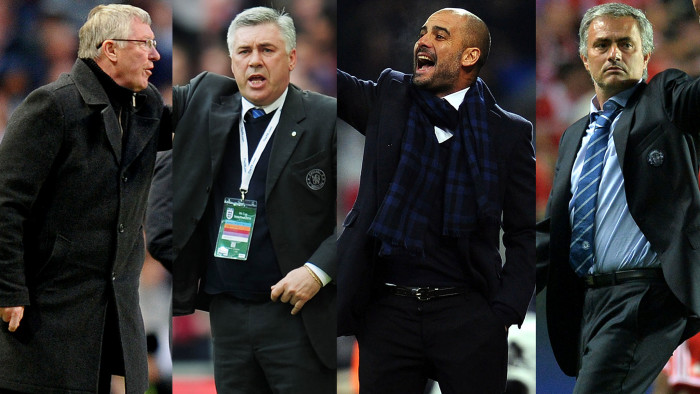Some coaches are so outstanding that they can transform team performance and have a long-lasting impact on the game of football. They have shaped the sports scene as it exists now. This list houses the ten greatest football managers of all time. In the game of football, these masters oversaw many great victories and lifelong memories. These coaches have won leagues in their respective nations, events in Europe, and competitions worldwide. They landed in football history this way. Both of them are excellent strategists and guides of their teams towards maximum performance. Many associate Sir Alex Ferguson and Pep Guardiola with During his tenure as Manchester United manager, Ferguson established the benchmark for excellence; Guardiola was a forerunner in the expansion of contemporary football. Arrigo Sacchi and some other players altered the game with fresh approaches.
Great managers who combined philosophy with success, like Johan Cruyff, inspired athletes from past generations by means of their approach. This list examines their successes, including the number of honours they received, the modifications they made to team performance, and their long-lasting impact on players and teams. Making their clubs top performers in the Premier League, La Liga, or the Champions League is one way each of these football coaches has altered the game. Football fans searching for the top coaches, well-known managers, or legendary tactical geniuses should be able to better appreciate what it is about these individuals that makes them so famous thanks to this in-depth investigation. Examine the tales, stats, and tactics they have used to rise to be the most successful football managers in the annals of the game.
The Top Ten Greatest Football Mangers Of All Time
10. Marcelo Bielsa

Marcelo Bielsa stands out as a revolutionary figure in football management, known for his intense, high-pressing style. Born in Rosario, Argentina, in 1955, Bielsa’s brief playing career gave way to a coaching journey that transformed teams worldwide. His early success at Newell’s Old Boys, securing Argentine titles in the 1990s, showcased his meticulous approach. Managing Argentina from 1998 to 2004, he won Olympic gold and reached the Copa América final.
His work with Chile’s national team and clubs like Athletic Bilbao and Leeds United, where he ended a 16-year Premier League absence in 2020, cemented his reputation. Bielsa’s man-marking and relentless pressing influenced modern tacticians like Pep Guardiola. His philosophy, prioritizing collective effort and tactical discipline, resonates with fans seeking stories of transformative football managers. Now leading Uruguay, Bielsa’s legacy continues to shape the game, blending passion with innovation.
9. Bill Shankly
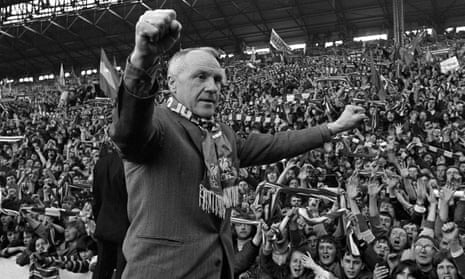
Bill Shankly’s name is synonymous with Liverpool FC’s rise to greatness. Born in Glenbuck, Scotland, in 1913, Shankly’s playing days at Preston North End preceded a managerial career that redefined a club. Taking over Liverpool in 1959, when they languished in the Second Division, he secured promotion by 1962 and won the First Division in 1964. His haul included three league titles, two FA Cups, and a UEFA Cup by 1974.
Shankly’s emphasis on fan connection, attacking football, and team spirit built a foundation for Liverpool’s future dominance. His motivational leadership and wit made him a beloved figure, with Anfield’s Shankly Gates honoring his legacy. Retiring in 1974, he left a blueprint for success, influencing successors like Bob Paisley. Fans searching for football legends or Liverpool’s history will find Shankly’s story a testament to transformative leadership in soccer.
8. Sir Bobby Robson

Sir Bobby Robson’s gentlemanly approach and remarkable career make him a football icon. Born in County Durham, England, in 1933, Robson’s playing career at Fulham and West Bromwich Albion earned him 20 England caps. As a manager, he transformed Ipswich Town, winning the 1978 FA Cup and 1981 UEFA Cup. Leading England from 1982 to 1990, he guided them to the 1990 World Cup semi-finals, nurturing stars like Gary Lineker.
His European stints at PSV Eindhoven, FC Porto, and Barcelona, where he won the European Cup Winners’ Cup, showcased his adaptability. Returning to Newcastle United, he revitalized the club. Knighted in 2002, Robson’s battle with cancer and his foundation for research added to his legacy. His integrity and success make him a must-read for those exploring football history and inspirational soccer coaches.
7. Carlo Ancelotti
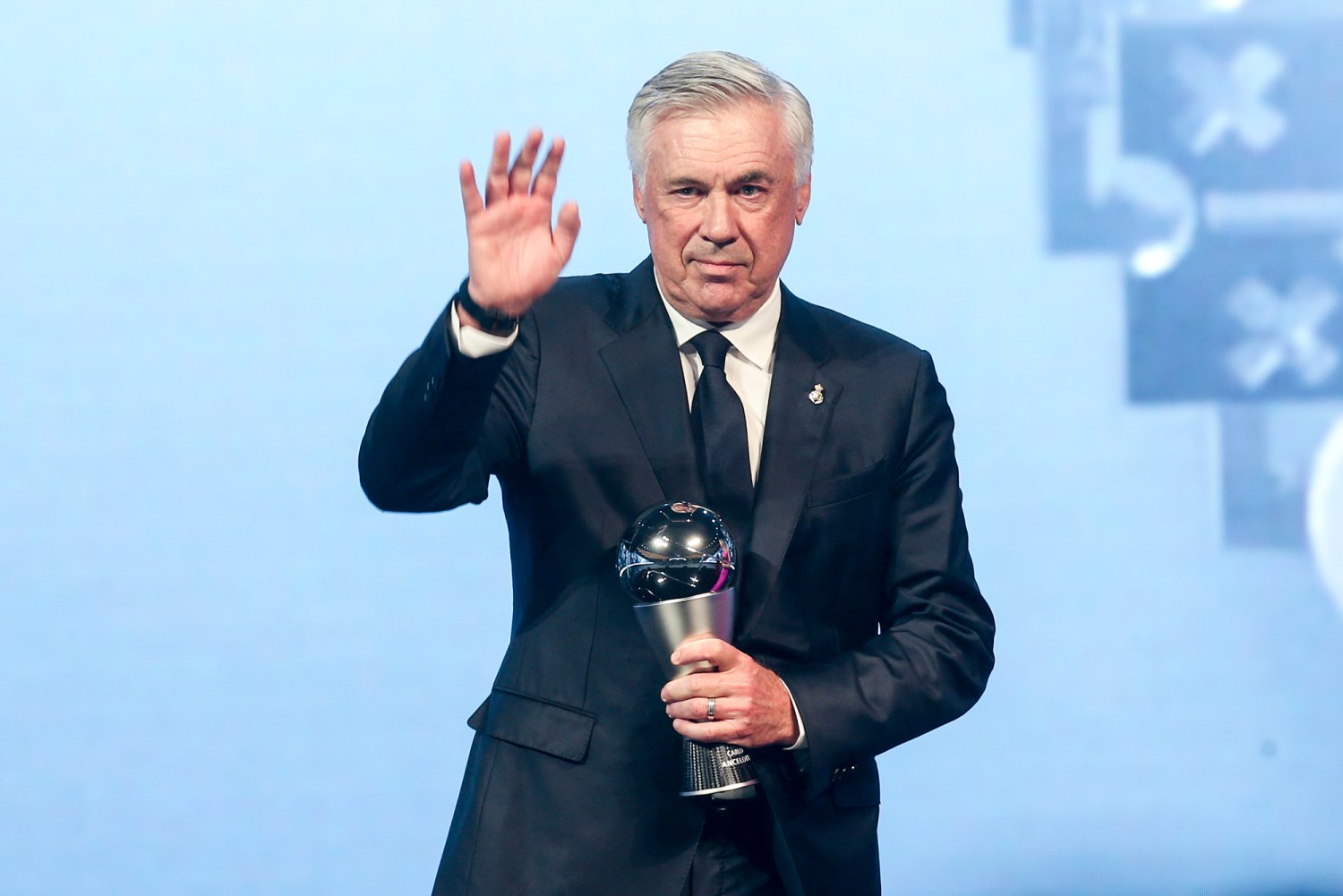
Carlo Ancelotti’s record as a five-time Champions League winner defines him as a football management titan. Born in Reggiolo, Italy, in 1959, Ancelotti’s playing career at Roma and AC Milan included two European Cups. Starting as Arrigo Sacchi’s assistant, he managed AC Milan to Champions League titles in 2003 and 2007. His Chelsea tenure delivered a Premier League and FA Cup double in 2010, while Paris Saint-Germain and Bayern Munich added domestic titles. At Real Madrid, he won two more Champions Leagues and La Liga, becoming the only manager to win all five major European leagues. Known for tactical flexibility and player rapport, Ancelotti’s calm leadership shines. Currently with Brazil, his story appeals to fans seeking insights into record-breaking football managers and European soccer success.
6. Bob Paisley
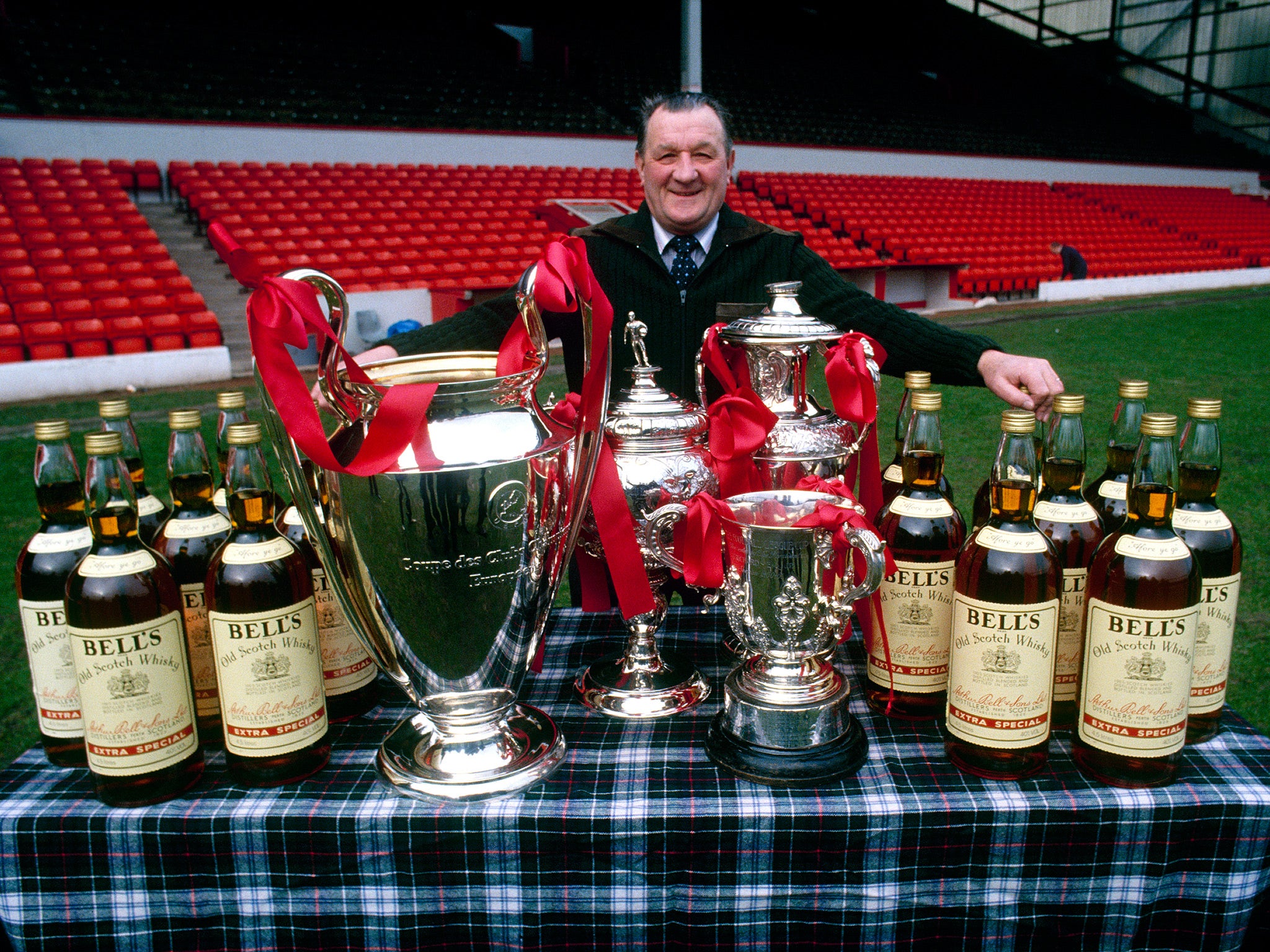
Bob Paisley’s quiet brilliance made him one of Liverpool’s greatest managers. Born in Hetton-le-Hole, England, in 1919, Paisley played for Liverpool, winning the 1947 First Division. After serving in World War II, he joined Liverpool’s staff, succeeding Bill Shankly in 1974. His nine-year reign brought six First Division titles, three European Cups, and a UEFA Cup, among others. Paisley’s knack for spotting talent, like Kenny Dalglish, and his tactical acumen, including strategic substitutions, set him apart. His humble demeanor belied a fierce competitive streak, making Liverpool a European powerhouse. Retiring in 1983, Paisley’s legacy endures at Anfield. His story captivates those searching for football’s tactical geniuses and Liverpool’s golden era.
5. Pep Guardiola

Pep Guardiola’s influence as a modern tactical genius is unmatched. Born in Santpedor, Spain, in 1971, Guardiola’s playing career at Barcelona included a 1992 European Cup. As a manager, he revolutionized football with tiki-taka, winning a treble in his 2008 Barcelona debut season. His four years there yielded 14 trophies, including two Champions Leagues. At Bayern Munich, he dominated the Bundesliga, and at Manchester City since 2016, he’s won multiple Premier League titles and a 2023 Champions League, completing another treble. Guardiola’s possession-based style and player development, from Lionel Messi to Kevin De Bruyne, have reshaped football. His story draws fans exploring modern soccer tactics and championship-winning coaches.
4. Johan Cruyff
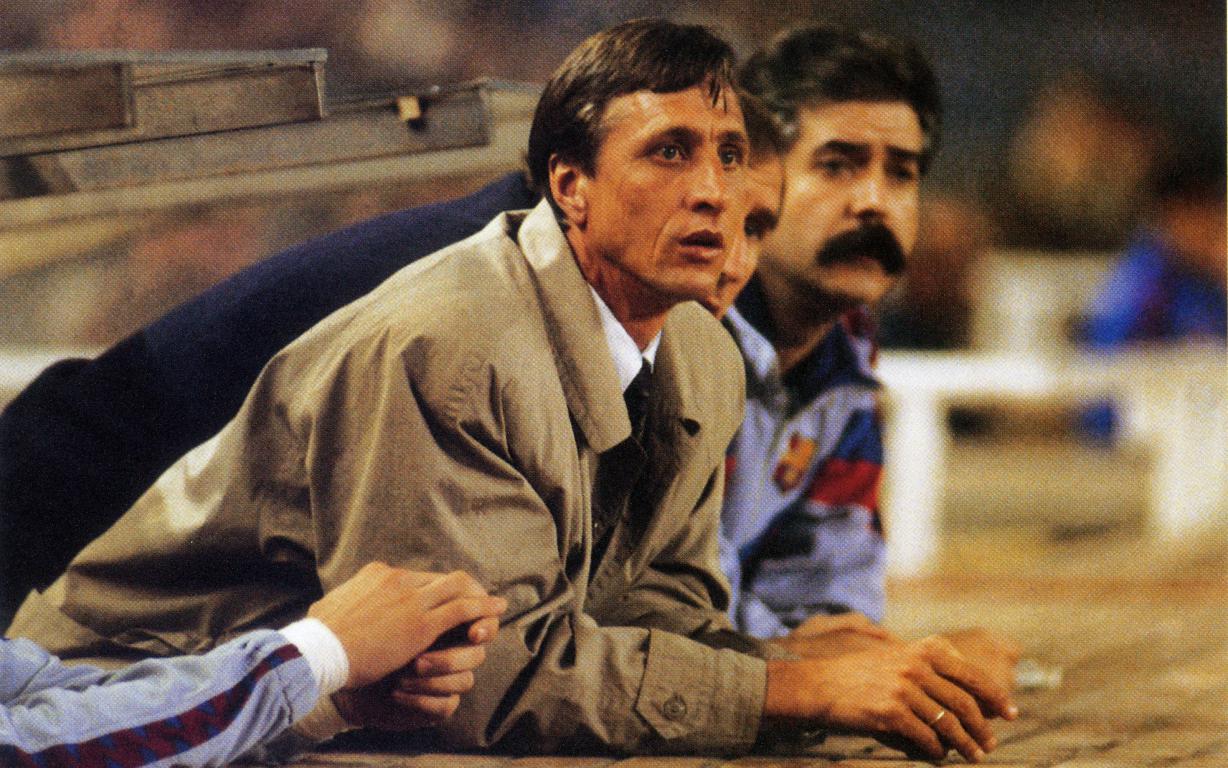
Johan Cruyff’s legacy as a manager matches his brilliance as a player. Born in Amsterdam in 1947, Cruyff’s playing career at Ajax and Barcelona included three European Cups. Managing Ajax from 1985, he won the European Cup Winners’ Cup, but his Barcelona tenure from 1988 to 1996 defined him. His “Dream Team” won four La Liga titles and the 1992 European Cup, introducing Total Football’s fluid, possession-based style. Cruyff’s La Masia academy nurtured talents like Pep Guardiola, shaping Barcelona’s identity. His philosophy influenced global football, making him a beacon for fans seeking stories of revolutionary soccer coaches and tactical innovation.
3. Arrigo Sacchi
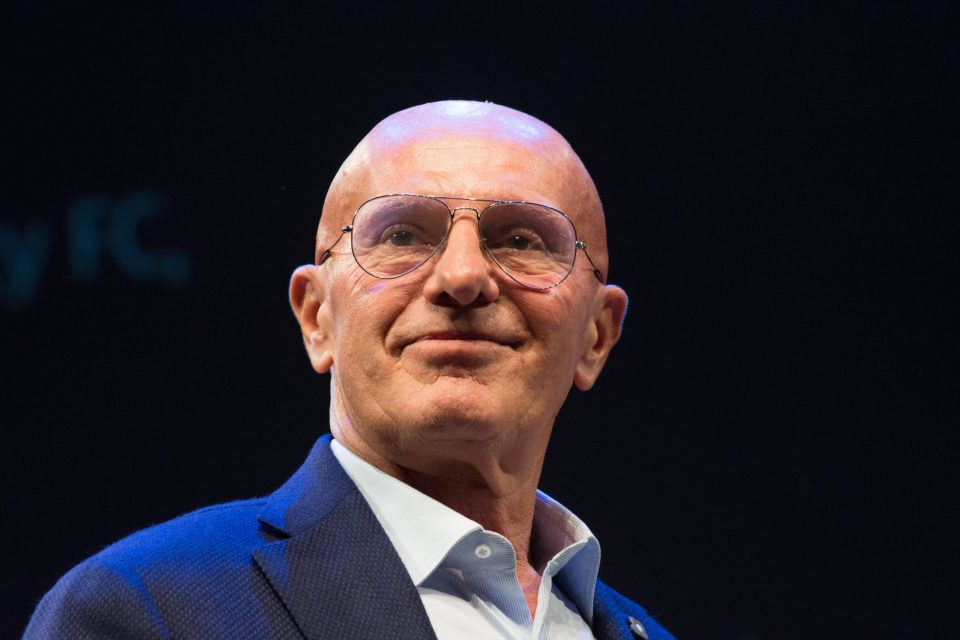
Arrigo Sacchi redefined football tactics with his innovative approach. Born in Fusignano, Italy, in 1946, Sacchi never played professionally but rose through coaching ranks. At AC Milan from 1987 to 1991, he won a Serie A title and two European Cups, using high-pressing and zonal marking. His teams, featuring stars like Marco van Basten, transformed Italian football’s defensive mindset. Leading Italy to the 1994 World Cup final, Sacchi’s influence on managers like Pep Guardiola is profound. His story resonates with those researching football tactics and legendary managers who reshaped the game.
2. Rinus Michels

Rinus Michels, the father of Total Football, is a cornerstone of football history. Born in Amsterdam in 1928, Michels played for Ajax before managing them from 1965 to 1971, winning four Eredivisie titles and the 1971 European Cup. At Barcelona, he secured the 1974 La Liga title, and with the Netherlands, he reached the 1974 World Cup final and won the 1988 European Championship. His Total Football, emphasizing fluid roles and possession, revolutionized the sport. Named FIFA’s Coach of the Century, Michels’ legacy attracts fans exploring soccer’s tactical evolution and Dutch football history.
1. Sir Alex Ferguson
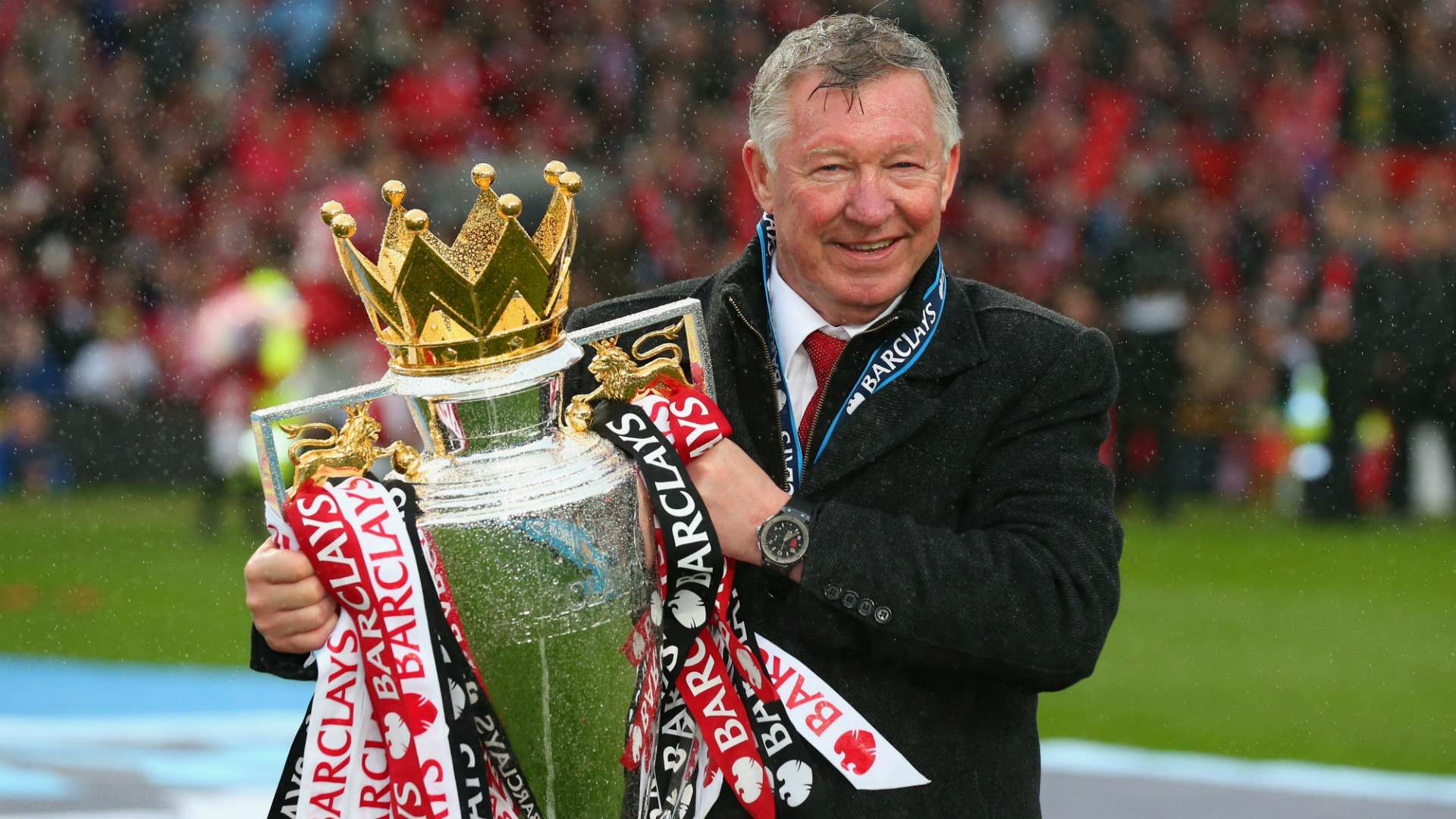
Sir Alex Ferguson is widely regarded as the greatest football manager ever. Born in Glasgow, Scotland, in 1941, Ferguson’s early success at Aberdeen included three Scottish titles and a European Cup Winners’ Cup. At Manchester United from 1986 to 2013, he won 13 Premier League titles, five FA Cups, and two Champions Leagues, building a global powerhouse. His ability to develop players like Ryan Giggs and adapt tactics over decades set him apart. Knighted in 1999, Ferguson’s legacy captivates those searching for football’s greatest managers and Manchester United’s storied history.

